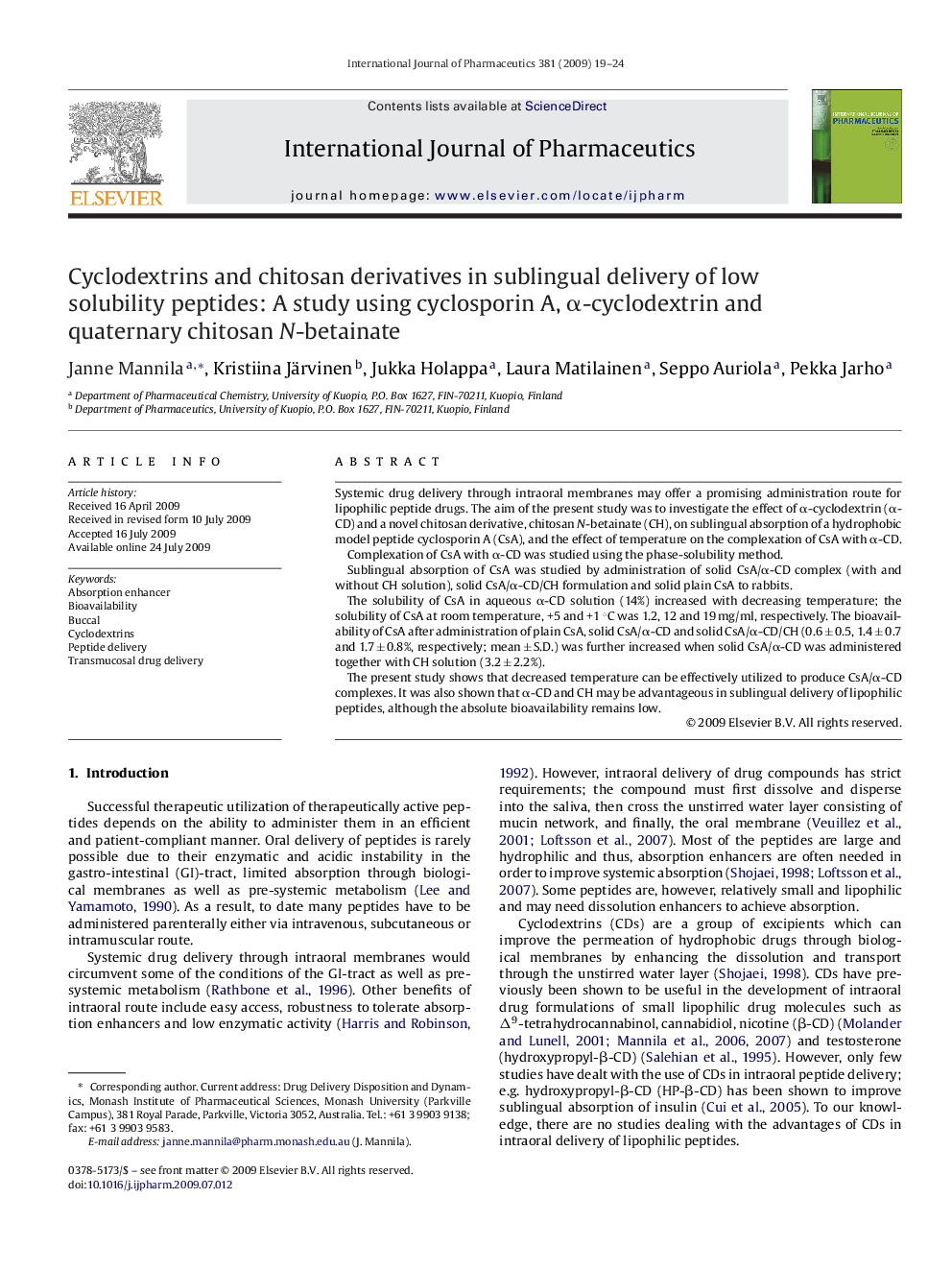| Article ID | Journal | Published Year | Pages | File Type |
|---|---|---|---|---|
| 2504313 | International Journal of Pharmaceutics | 2009 | 6 Pages |
Systemic drug delivery through intraoral membranes may offer a promising administration route for lipophilic peptide drugs. The aim of the present study was to investigate the effect of α-cyclodextrin (α-CD) and a novel chitosan derivative, chitosan N-betainate (CH), on sublingual absorption of a hydrophobic model peptide cyclosporin A (CsA), and the effect of temperature on the complexation of CsA with α-CD.Complexation of CsA with α-CD was studied using the phase-solubility method.Sublingual absorption of CsA was studied by administration of solid CsA/α-CD complex (with and without CH solution), solid CsA/α-CD/CH formulation and solid plain CsA to rabbits.The solubility of CsA in aqueous α-CD solution (14%) increased with decreasing temperature; the solubility of CsA at room temperature, +5 and +1 °C was 1.2, 12 and 19 mg/ml, respectively. The bioavailability of CsA after administration of plain CsA, solid CsA/α-CD and solid CsA/α-CD/CH (0.6 ± 0.5, 1.4 ± 0.7 and 1.7 ± 0.8%, respectively; mean ± S.D.) was further increased when solid CsA/α-CD was administered together with CH solution (3.2 ± 2.2%).The present study shows that decreased temperature can be effectively utilized to produce CsA/α-CD complexes. It was also shown that α-CD and CH may be advantageous in sublingual delivery of lipophilic peptides, although the absolute bioavailability remains low.
